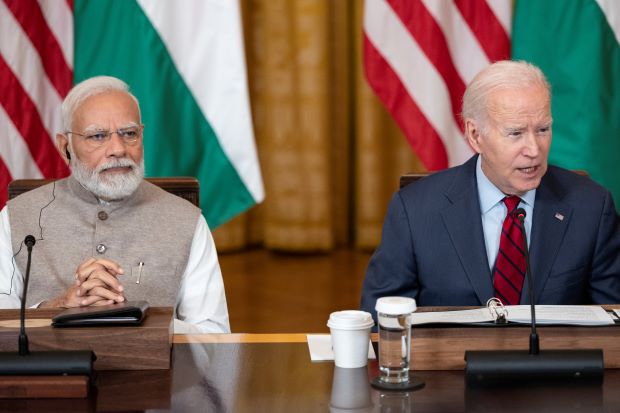India faces questions about another reported foreign assassination plot

By Mujib Mashal
NEW DELHI — For the second time in recent months, India’s government is facing questions about whether it was involved in an assassination plot on Western soil, as American officials said they had expressed concerns to New Delhi about a thwarted plan to kill a dual US-Canadian citizen.
US officials did not publicly accuse India of trying to orchestrate the killing of the dual citizen, reported by news outlets to be Gurpatwant Singh Pannun, a vocal advocate of the cause of Sikh separatism.
But the revelation of a foiled plot comes just months after Prime Minister Justin Trudeau of Canada accused the Indian government of involvement in the killing of another Sikh separatist, Hardeep Singh Nijjar, on Canadian territory. And in the case of Pannun, news outlets, led by The Financial Times, reported Wednesday (22) that the Biden administration had told the Indian government it had information possibly linking New Delhi to the plot against him.
Responding to those reports, which cited anonymous US officials, the Indian foreign ministry issued a vaguely worded statement acknowledging discussion with the United States on the matter.
“The US side shared some inputs pertaining to nexus between organized criminals, gun runners, terrorists and others. The inputs are a cause of concern for both countries, and they decided to take necessary follow-up action,” the statement said.
In its own statement on Wednesday, the White House’s National Security Council said: “We are treating this issue with utmost seriousness, and it has been raised by the US government with the Indian government, including at the senior-most levels. Indian counterparts expressed surprise and concern. They stated that activity of this nature was not their policy.”
When Trudeau, the Canadian leader, made his bombshell allegation in September, it sent already prickly relations between India and Canada to a new low and set off a series of tit-for-tat retaliatory actions, including expulsions of diplomats.
US officials, by contrast, expressed their concern in the Pannun case privately, highlighting the importance the Biden administration places on its growing relations with India.
The two countries have expanded defence and trade ties, with a constant flow of senior American officials visiting the Indian capital in recent months, as the United States tries to counter China’s influence in the region.
Still, if India was involved in a plot inside the United States, it would represent an audacious breach against a powerful democratic ally, and it would intensify questions about New Delhi’s reliability as a partner that were raised after Trudeau’s accusation.
The Indian response to the US concern over the plot, as described by the National Security Council, appeared to be broadly in line with New Delhi’s earlier defence against Canada’s accusation of involvement in an extrajudicial killing on foreign soil.
Rejecting the claim, India’s top diplomat at the time publicly said that such actions were not Indian government policy. In private, officials said they were being wrongly implicated in what were essentially gang wars and intergroup rivalries among Sikh separatist elements.
The right-wing support base of Prime Minister Narendra Modi, as well as the heavily sympathetic Indian broadcast media, took a two-pronged approach. They voiced outrage at the Canadian accusation while insinuating that Nijjar, the slain Sikh, had deserved to be killed and that his death showed the long arm of a strengthened India under Modi.
Relations between India and Canada remain icy, and Canadian officials have yet to provide any evidence for their claims of Indian involvement in Nijjar’s death. But some of the retaliatory measures have been rolled back, with Indian officials saying on Wednesday that e-visa services for Canadian citizens had resumed.
Pannun, a lawyer who is involved with an organization called Sikhs for Justice, which is banned in India, has a history of violent statements against Indian officials. In recent weeks, he made a veiled threat against Air India, triggering flashbacks to a 1985 terrorist attack by Sikh separatists that killed more than 300 people on one of the airline’s flights.
India, which issued a warrant for Pannun’s arrest last year, has lodged several cases accusing him of terrorism. A new case was filed against him this week following his comments about Air India.
“Pannun’s assertions and threats have triggered a high alert as well as investigations by security forces in Canada, India and certain other countries where Air India flies,” India’s National Investigation Agency said in a statement after filing the case.
-New York Times


Comments are closed, but trackbacks and pingbacks are open.